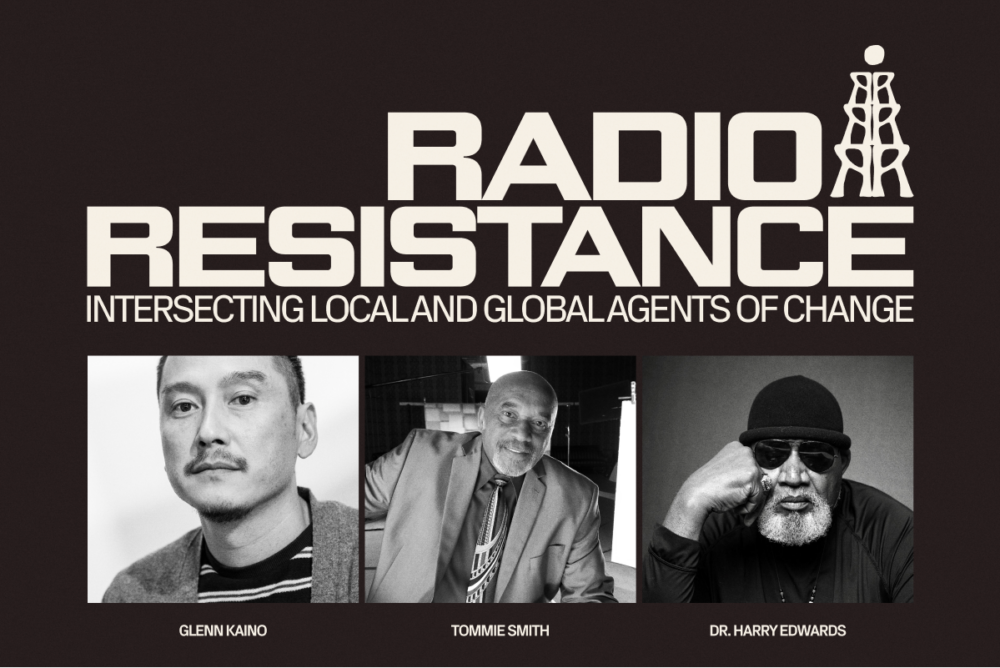In a gesture witnessed around the world, Tommie Smith’s raised fist at the 1968 Olympics, with fellow US sprinter John Carlos, connected with and inspired future athletes to take part in social and political activism. Colin Kaepernick and other NFL players taking a knee during the National Anthem, WNBA players wearing Black Lives Matter adorned jerseys in games—such recent acts are part of Smith’s legacy. In this two-part episode, hear from Smith and artist Glenn Kaino about their long collaboration on a body of work paying homage to this moment and the timelessness of taking a stand. Dr. Harry Edwards, a St. Louis/East St. Louis native, also joins the episode to share how his segregated upbringing laid the foundation for him to contribute to the Olympic Project for Human Rights and the rise of sports sociology. All three participants explore the potential for athletics to serve as a metaphor for creating an arena for social change, and the imagination, ambition, and courage required to do so.
Glenn Kaino is an artist whose works, often functioning as poetic contradictions, aim to reconcile conflicting ideologies, opposing systems, and strict dichotomies in material and experiential ways. In addition to his studio practice, he also operates outside the traditional purview of contemporary art, instigating collaborations with other modes of culture—ranging from tech to music to political organizing. He has collaborated on a consciousness-raising body of work with Tommie Smith since 2013.
Tommie Smith is an activist and athlete who, in Mexico City in the summer of 1968, broke the world and Olympic records with a time of 19.83 seconds and became the 200-meter Olympic champion. As The Star-Spangled Banner played, Smith and John Carlos stood on the victory podium and raised a fist in a historic gesture of Black power, liberation, and solidarity. Smith made a commitment to dedicate his life, even at great personal risk, to champion the causes of oppressed people.
Dr. Harry Edwards is Professor Emeritus of Sociology at the University of California, Berkeley. He was born in Homer G. Phillips Hospital, St. Louis’s segregated hospital for Black people, and raised in East St. Louis before he moved to California. There, he organized the Olympic Project for Human Rights, the movement that encouraged Tommie Smith and John Carlos to raise a fist at the 1968 Olympics. He is the author of the seminal book The Revolt of the Black Athlete.
Radio Resistance assembles the voices of intersecting local and global agents of change. Artists featured in the exhibition Stories of Resistance are paired with figures from the past, present, and future of St. Louis, coming together to transmit messages of dissent. A selection from their discussion can be found on St. Louis on the Air, the noontime talk program hosted by Sarah Fenske on St. Louis Public Radio, with the full episode also available in a listening station at CAM, and on Apple Podcasts, Spotify, and Stitcher.
Radio Resistance is co-produced by Michelle Dezember, Director of Learning and Engagement, Wassan Al-Khudhairi, Chief Curator, and Misa Jeffereis, Assistant Curator. Sound design and editing by Sean Pierce.
